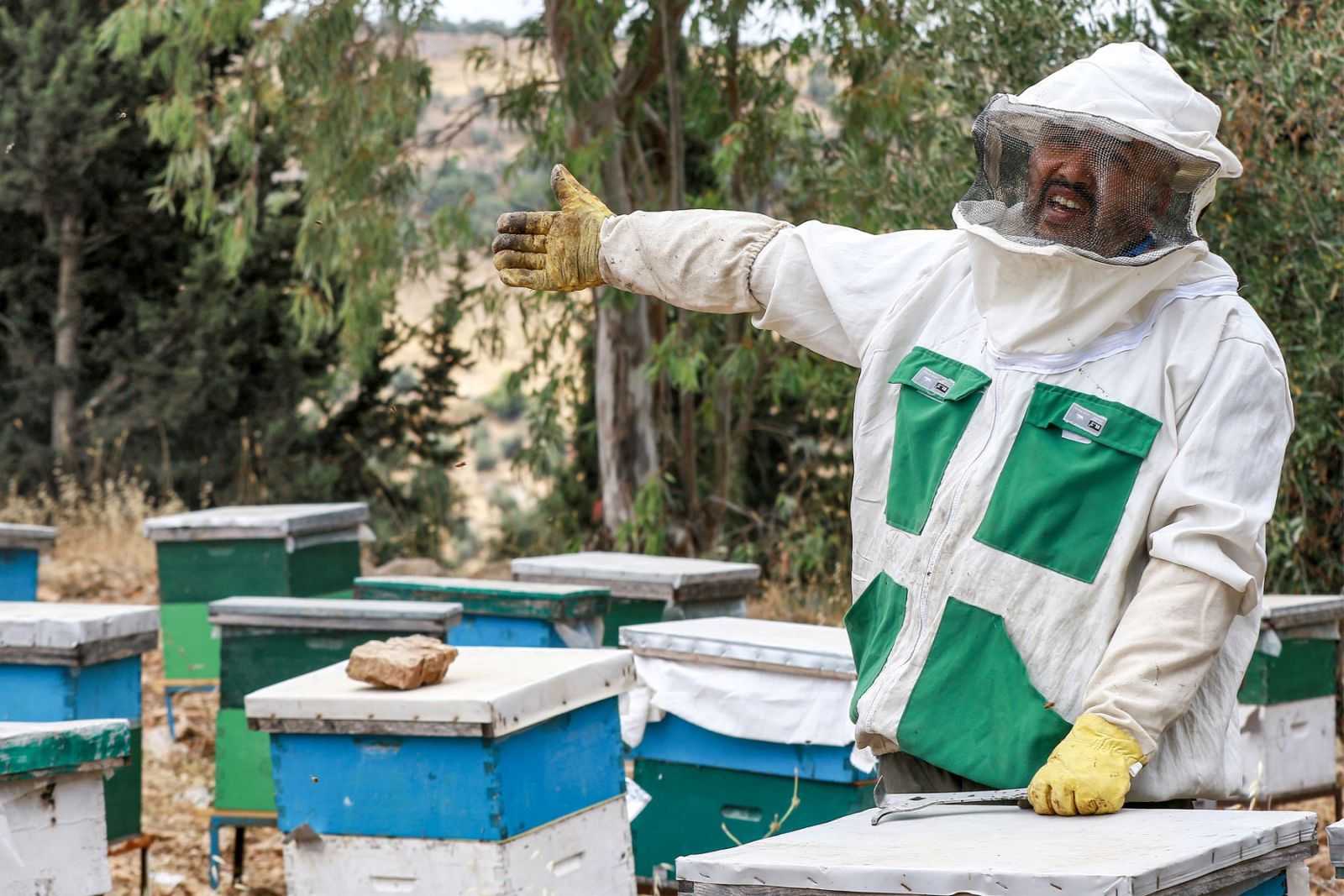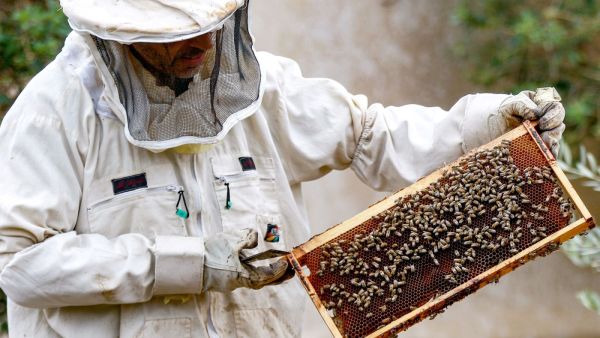ALBAWABA – The economic value of Jordan’s beekeeping and honey making sector is valued at more than $100 million, as reported in an Agence France-Press (AFP) report on beekeepers in Jordan, published Sunday.
While many sectors in Jordan were hammered by the COVID-19 pandemic and the lockdowns that came with it, some actually thrived, including beekeeping and honey production, the AFP focus by Musa Hatter explained.
"The Covid period in particular had a great, positive impact on us," said beekeeper Mutasim Hammad.
The beekeeping sector generates about $28 million a year in sales, according to Mohammad Rababaa, head of the Jordan Beekeeping Association.
But "the indirect value of crop pollination exceeds $100 million." He underlined.
The country's 4,000 apiarists (beekeeping facilities) have ramped up honey output to meet rising demand, due to the long praised anti-inflammatory and other health benefits of honey, AFP reported.
During the pandemic, "there was good demand for honey," Hammad said.

Even with no scientific consensus that honey helps fight Covid, many of those infected have used it to soothe symptoms such as sore throats, the news agency said.
"People have become more aware of the value of honey and are turning to the guaranteed locally produced honey," Hammad explained, adding that he sells about 400 kilograms a year.
Jordan prides itself on its 19 different types of honey, including citrus, eucalyptus and maple varieties, depending on which plants the bees pollinate.
"We have about 2,500 flowering plants," said Rababaa.
"This diversity distinguishes Jordanian honey and means that the therapeutic and nutritional value of this honey is expected to be better than other types," he confirmed.
"The number of beekeepers [in Jordan] is more than 4,000," Rababaa claimed. They produce about 700 to 800 tonnes annually, about 70 percent of Jordan's annual domestic needs, he said, adding that the country is “very close to self-sufficiency” and that "imports must be stopped".
Jordanian honey sells for $21 to $42 per kilogram, depending on the type, AFP reported.
Rababaa said the economic benefit "is not limited to honey, as it also produces pollen, royal jelly, wax, propolis and bee venom, which is included in many therapeutic compounds".







